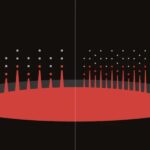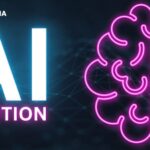The year 2023 started with full throttle in the area of technology, or more specifically artificial intelligence. It is revolutionizing almost every sector with its dynamic performance at blazing speed. Every industry that utilizes technology is adopting AI wholeheartedly as it promises to take business performance to new heights. The medical sector is also revamping its potential with Biotechnology, the world’s most active area of research in terms of life sciences, using the latest tools and technologies. It not only aims to transform healthcare but also will positively impact the agriculture, energy, and environment sectors. According to the statistics, the biotech market is expected to surpass $3.44 trillion by the end of 2030. This write-up will guide you through the remarkable progress in biotechnology and will introduce you to the latest trends and innovations that are shaping the future.
What is Biotechnology – An Overview
Before diving deep into the latest developments in the sector, let us briefly explain what Biotechnology is. It combines the power of biology and technology to provide novel solutions to a wide variety of social problems. It entails manipulating live creatures or their components in order to generate useful goods and technology. Biotechnology has changed industries such as healthcare, agriculture, and environmental sustainability by merging biology, chemistry, genetics, and engineering. Biotechnology science has made significant advancements in recent years, bringing it to new boundaries of invention that we will discuss later in this blog.
The Role of Biotechnology in Different Industries
Talking about the versatility of this field for different industries, we can say that biotechnology is an integral component of every sector that involves interaction with life! Here is how different sectors utilize biotechnology to provide the best solutions to their consumers, ultimately contributing to the welfare of mankind.
Medicine
- Biotechnology allows for the investigation of an individual’s genetic composition, allowing for individualized treatments and therapies according to their exact genetic profile.
- Gene Therapy: Biotechnology methods such as CRISPR-Cas9 enable precise gene editing, potentially giving therapies for genetic illnesses by repairing or changing faulty genes.
- Drug Development: Biotechnology is important in the discovery and development of new pharmaceuticals, including the use of genetic engineering to create therapeutic proteins and antibodies.
Agriculture
- Precision Agriculture: Biotechnology techniques enable crop health and nutritional requirements to be monitored, allowing for more focused and effective use of fertilizers, herbicides, and water resources.
- Biofortification: Biotechnology improves crop nutritional content, reducing malnutrition by supplementing staple foods with important vitamins, minerals, and proteins.
- Disease Resistance: Biotechnology allows for the generation of disease-resistant plant types, lowering dependency on chemical pesticides and boosting environmentally friendly agriculture technology and methods.
- Crop Improvement: Biotechnology approaches such as marker-assisted selection and genetic mapping help in the production of better crop varieties with desirable qualities, which benefits both farmers and consumers.
Manufacturing
- Industrial Biotechnology: By harnessing microorganisms to manufacture useful substances such as enzymes, biofuels, and bioplastics, biotechnology provides sustainable alternatives to traditional industrial methods, lowering dependency on fossil fuels.
- Biopharmaceuticals: Through genetic engineering and cell culture methods, biotechnology plays a critical role in the manufacture of biopharmaceuticals such as vaccines, antibodies, and recombinant proteins.
- Waste Management: Biotechnology provides waste management solutions by deploying microorganisms to degrade organic waste, resulting in the creation of biofuels, biogas, and compost.
- Biotechnology facilitates the production of environmentally friendly products such as biodegradable plastics and bio-based materials, minimizing the environmental effect of industrial processes.
Top 5 Biotechnology Trends in 2023
Enough talking about generic definitions of biotechnology and its industrial use cases. Let’s dive further into the latest trends and practices that are being followed in the market which make biotechnology a discipline for the future. Here are the top 5 innovative trends that you should be aware of if you aim to step into this ever-evolving field.
Personalized Medication
Every person on Earth carries a unique genetic profile. Personalized medicine is the first emerging practice in the Biotechnology field that focuses on an individual’s specific genetic profile. This technique is a completely new way to make informed decisions in regard to the diagnosis of patients’ health as per their unique medical traits. Knowing a person’s genetic health allows medical experts to prescribe the right personalized medicine which can help in the prevention, diagnosis, and treatment of the disease faster and efficiently. Personalized medicine is an emerging trend that is getting more and more advanced through data processing from different significant discoveries in the medical world, one of which is the Human Genome Project.
Advanced Drug Research
AI and technology will be critical in developing medication development by 2023. Large volumes of patient data, such as genomes and proteomics, can be analyzed by AI to find prospective drug targets and forecast efficacy and safety. Machine learning techniques can also be used to model and mimic complicated natural processes, hence speeding up drug development. Furthermore, AI may help with virtual compound screening, predicting interactions with target molecules, and identifying prospective therapeutic candidates for further research. Real-world efforts such as DeepMind’s AlphaFold, which successfully predicts protein folding, and IBM Watson’s Drug Discovery program, which utilizes AI to find novel drug targets, demonstrate how AI is transforming advanced drug research. These technologies have the potential to speed up the development of life-saving drugs.
Synthetic Biology
The third major biotechnology trend to follow in 2023 is the field of synthetic biology. It involves the redesigning of organisms to make useful modifications and engineer them to have new abilities. Synthetic biology when combined with technology can have great potential for redesigning organisms so that they can be productive in terms of a new substance, fuel, ability, or medicine. Synthetic biology has the potential to speed up bio-based product creation, improve our knowledge of complicated biological systems, and deliver unique solutions to global challenges. As we continue to realize the potential of synthetic biology and harness technology, it has the ability to alter industries, improve healthcare, and shape a more sustainable and resilient future.
AI-Powered Health Sensors
AI-powered health sensors, such as smartphone heart rate monitoring hardware and other wearable gadgets, have the potential to transform the future of healthcare. These sensors, when combined with artificial intelligence are capable of collecting and analyzing real-time health data, delivering individualized insights and actionable suggestions. Mobile applications, in particular, will grow into comprehensive health companions, using a variety of sensors to monitor vital signs, sleep habits, physical activity, and other factors. These AI-enabled sensors can recognize patterns, anticipate health hazards, and even recommend early action. This game-changing technology will enable individuals to manage their health proactively, enable remote patient monitoring, and support prompt treatments, eventually leading to improved healthcare outcomes and a shift toward a more preventative and patient-centric healthcare strategy. Mobile phone giants such as Apple, Google, and Samsung have already started incorporating AI into their apps and they will continue to push it further to achieve high levels of accuracy.
Use of Big Data in Drug and Diagnostics
Data is the foundation of everything we have discussed till now. Artificial intelligence, smart sensors, and drug researchers all consume data to perform their operations. This leads us to the top fifth major biotechnology trend in 2023 which is the use of big data to create solutions to medical problems. In the area of medication, more specifically biochemistry, big data will play a crucial role in the future. Big data analytics can reveal previously unknown patterns and relationships. This superabundance of data can assist in the identification of new therapeutic targets, the prediction of medication reactions, and the development of individualized treatment strategies. Big data may also improve diagnostics by allowing for early illness identification, aiding precision medicine, and enhancing clinical decision-making. Researchers and healthcare professionals can leverage the potential of data-driven insights to expedite drug development, improve diagnostic accuracy, and eventually alter the way illnesses are understood, diagnosed, and treated by using big data analytics.
Major Hurdles in the Way of Biotechnology Advancement
Biotechnology looks very promising in the future with AI and other latest technologies playing a crucial role in its development. But there are several challenges every evolving field has to face in order to achieve its objective. From a lack of industry professionals to a shortage of talent and resources, biotechnology needs to cope with these hurdles. Here are the top three challenges in the way of biotechnology advancement in 2023 and beyond.
Technology Costs
All the technologies we have discussed so far sound promising for the future. But one challenge most biotechnology organizations face is the expensive cost of implementing these technologies. Hardware and equipment that is necessary for technologies to work cost millions of dollars to these firms in order to achieve the right output. Advanced and specialized equipment, such as DNA sequencers, gene editing tools, and high-throughput screening systems, are widely used in biotechnology research and development. These technologies are frequently expensive, making it difficult for smaller businesses and research institutes with limited funds to acquire and efficiently use them. High technology prices can stifle creativity, restrict progress, and limit the reach of biotechnological developments, eventually affecting the rate of scientific discovery and the creation of new cures and treatments.
Regulatory Concerns
Regulatory concerns will be a big future barrier for the biotechnology sector. According to the latest biotech news, it is concerned with cutting-edge technologies and creative techniques that frequently test the boundaries of existing regulatory systems. As new uses and products arise, authorities must ensure safety, ethical considerations, and proper oversight. It is a difficult undertaking to strike the correct balance between stimulating innovation and preserving public health and the environment. Delays in regulatory clearances or stringent regulations may hinder biotechnological product development and commercialization, inhibiting investment and delaying advancement in the area.
Talent Shortage
There is a mismatch between the need for qualified experts and the available talent pool. Rapid scientific advancements, along with a shortage of workers with specialized knowledge and skill, have created a competitive climate for recruiting and maintaining top talent. This can become a significant barrier between scientific findings into real-world applications. To address the talent deficit, efforts in education, training, and building an environment that attracts and maintains qualified workers in the biotechnology sector will be required.
Summing it Up
In a nutshell, the biotechnology industry is positioned for significant developments in 2023, with several important trends and breakthroughs predicted to positively impact the industry. These include the continuous advancement of gene editing technologies, which opens up new avenues for targeted medicines and precision medicine. The rise of synthetic biology and its applications in bio-manufacturing and sustainable solutions holds enormous potential for tackling global concerns. Furthermore, the use of AI and machine learning in biotechnology research and drug development procedures is predicted to revolutionize data analysis, speed up research, and enhance treatment results. Overall, biotechnology packs a lot of potential for the betterment of life. People skilled in the field will be in demand if you are looking to step into the world of biotechnology. This is your time to excel in the industry by adapting to the latest trends and technologies. We publish science and technology articles every week, so make sure to follow Scientificasia.net to get the latest biotechnology news and updates.















